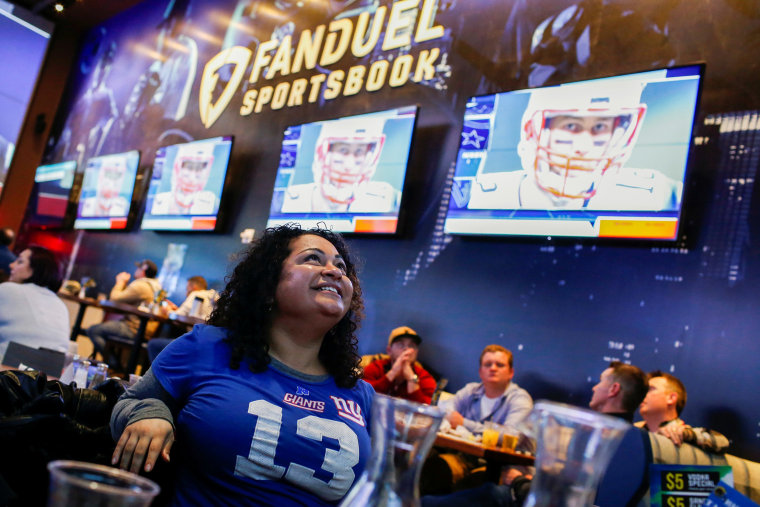The state of Nevada and its bet-takers for the Super Bowl were big winners from Sunday's game, in stark contrast to their counterparts in New Jersey, regulators said Monday.
In the Silver State, gamblers wagered $145.9 million on the big game and took a $10.8-million loss, according to figures released by the Nevada Gaming Control Board.
Meanwhile on the other side the country, players in New Jersey plunked down $34.9 million in Super Bowl action and made a profit of $4.6 million, according to the state's Division of Gaming Enforcement.
Veteran gaming-industry analyst and oddsmaker Danny Sheridan said obvious "regional bias" led many East Coast gamblers to put their dollars on the winning New England Patriots while patrons of Nevada sports were probably partial toward the losing Los Angeles Rams.
But Sheridan said he believes the fact that Nevada took in a far higher amount of bets was the big factor in its gamblers losing to the house.
"A larger handle is a direct correlation to a bookie's profits," Sheridan told NBC News. "I mean, you can play blackjack for 30 minutes and maybe you'll win. But if you play for four hours," you're always going to get beat.
This Super Bowl marked the first time gamblers in states other than Nevada could bet legally on pro football's big game.
New Jersey joined Rhode Island, Delaware, New Mexico, Mississippi, Pennsylvania and West Virginia in allowing sports gambling after the U.S. Supreme Court lifted national prohibitions against it last year. Before that ruling, Nevada was the only state to allow legal sports betting.
While each state has different rules in dividing sports betting wins and losses, the guidelines generally split the risk between casino operators and state taxing authorities.
Of the amount that Nevada gamblers lost on the Super Bowl, about $727,000 went toward state tax revenues, according to Michael Lawton, senior research analyst for the gaming board.
New Jersey's state government, in contrast, will probably take a slight hit financially as a result of the weekend's bets, officials conceded.
But even if New Jersey ends up losing several hundred thousand dollars from Super Bowl payouts, regulators insisted Trenton's coffers won't take a major dent. From mid-June, when New Jersey kicked off sports betting, through the end of December, the state collected $10.4 million in tax revenue for game bets — $3.4 million from wagers at brick-and-mortar locations and $7 million from online bets.
Eric Weiss, deputy executive director for New Jersey's Division of Gaming Enforcement, said Trenton hadn't had a firm idea of how much was going to be bet on the Super Bowl coming into this past weekend.
"This is our first experience here," Weiss told NBC News. "We'll be interested to see what the other jurisdictions come back with."
The Garden State is expected to have the largest handle of the seven states new to sports gambling, due to the availability of internet gambling.
For example there are 23 state-regulated casinos in Mississippi — more than double the 10 locales in New Jersey — but the Magnolia State, without an online option, handled just $4.7 million, so just a fraction of Jersey.
In Delaware, gamblers wagered more than $2.2 million, officials said. A healthy chunk of that, $409,329, came on long-term bets that involved Sunday's matchup.
West Virginia sportsbooks took in $2.8 million in Super Bowl bets, from its five locations and mobile players, according to the West Virginia Lottery, which runs sports gaming in the Mountaineer State.
State gaming regulators and operators at Pennsylvania's five sportsbooks and Rhode Island 's single location refused to say how much was bet on the Super Bowl at their outfits. Three Native American sportsbooks in Mississippi and one in New Mexico also declined to reveal their Super Bowl data.

